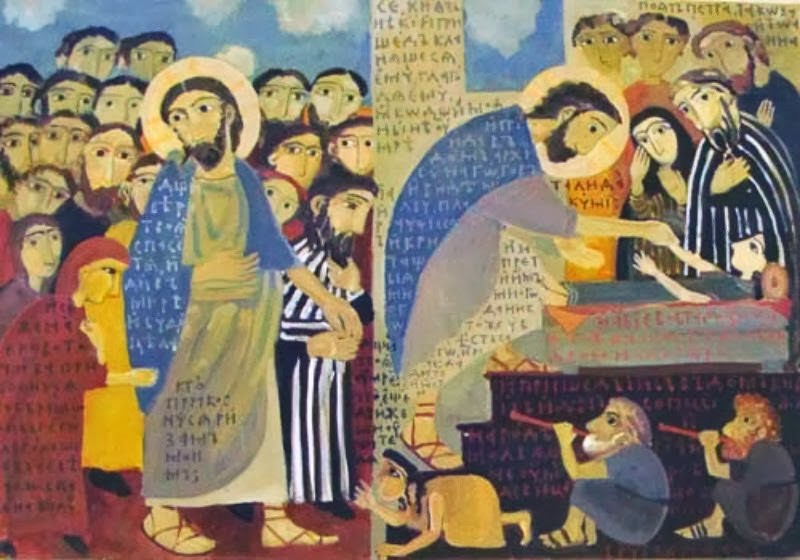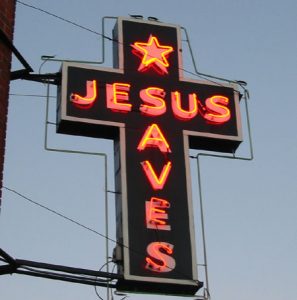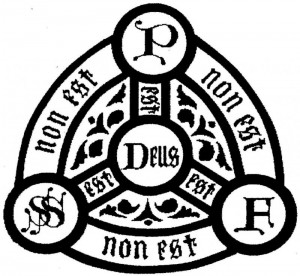 Most of the Bible texts from the Revised Common Lectionary this week present us with the well-worn and comfortable Biblical image of sheep and shepherds. Jeremiah rails against the shepherds of Israel “who destroy and scatter the sheep of [the Lord’s] pasture,”[1] pronouncing God’s intention to come and be the Shepherd in their place. “I myself,” says God, “will gather the remnant of my flock out of all the lands where I have driven them, and I will bring them back to their fold, and they shall be fruitful and multiply. I will raise up shepherds over them who will shepherd them, and they shall not fear any longer, or be dismayed, nor shall any be missing, says the Lord.”[2]
Most of the Bible texts from the Revised Common Lectionary this week present us with the well-worn and comfortable Biblical image of sheep and shepherds. Jeremiah rails against the shepherds of Israel “who destroy and scatter the sheep of [the Lord’s] pasture,”[1] pronouncing God’s intention to come and be the Shepherd in their place. “I myself,” says God, “will gather the remnant of my flock out of all the lands where I have driven them, and I will bring them back to their fold, and they shall be fruitful and multiply. I will raise up shepherds over them who will shepherd them, and they shall not fear any longer, or be dismayed, nor shall any be missing, says the Lord.”[2]
The Psalmist picks up the ball and runs with it in what may be the most famous piece of Hebrew poetry ever written: “The Lord is my shepherd,” he declares and we proclaim it with him. And then Mark’s Gospel continues down the field with the observation that Jesus “saw a great crowd; and he had compassion for them, because they were like sheep without a shepherd.”
The odd man out is the Epistle lesson, part of a letter claimed to be from Paul to a church in the Asia Minor port city of Ephesus. Not a single sheep or shepherd to be found. Instead we get talk of circumcision, of aliens and strangers, of dividing walls being torn down, and a “holy temple,” the “household of God, built upon the foundation of the apostles and prophets.”
 It had gone on so long she couldn’t remember a time that wasn’t like this. She lived in constant fear. She wasn’t just cranky and out-of-sorts; she was terrified. Her life wasn’t just messy and disordered; it was perilous, precarious, seriously even savagely so. It was physically and spiritually draining, like being whipped every day.
It had gone on so long she couldn’t remember a time that wasn’t like this. She lived in constant fear. She wasn’t just cranky and out-of-sorts; she was terrified. Her life wasn’t just messy and disordered; it was perilous, precarious, seriously even savagely so. It was physically and spiritually draining, like being whipped every day. Our kids this week have been “Shipwrecked,” but they’ve also been “rescued by Jesus.”
Our kids this week have been “Shipwrecked,” but they’ve also been “rescued by Jesus.” The theme for today’s lessons is clear . . . we are almost “hit upside head” with the concept of Sabbath. Our reading from Deuteronomy is the law establishing the mandatory day of rest:
The theme for today’s lessons is clear . . . we are almost “hit upside head” with the concept of Sabbath. Our reading from Deuteronomy is the law establishing the mandatory day of rest: Some of you may have heard of Brooks’s law, which has to do with the time it takes to complete a software project. It’s similar to the general law of diminishing returns in economics. Professor Fred Brooks of the University of North Carolina first proposed the law in 1975; it holds that “adding manpower to a late software project makes it later.”
Some of you may have heard of Brooks’s law, which has to do with the time it takes to complete a software project. It’s similar to the general law of diminishing returns in economics. Professor Fred Brooks of the University of North Carolina first proposed the law in 1975; it holds that “adding manpower to a late software project makes it later.”

